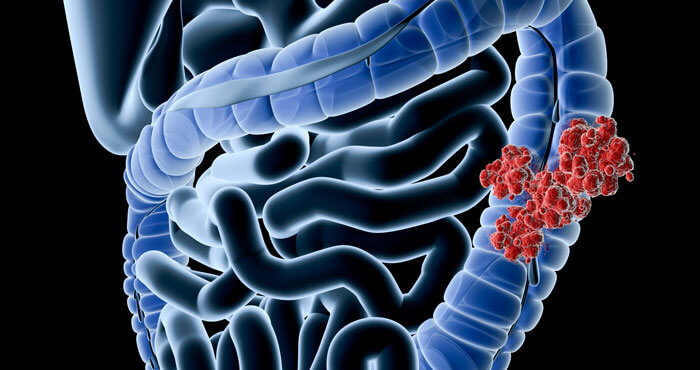Symptoms of Colorectal Cancer

Each year, more than 50,000 Americans die from colorectal cancer, the No. 2 cause of deaths from cancers affecting both men and women. But physicians say that treatment works best when the disease is detected and treated early.
Colorectal cancer is a cancer that occurs in the colon (large intestine) or the rectum, the passageway that connects the colon to the anus. Early colorectal cancers or precancerous polyps (growths) may not cause any symptoms, but they can be detected through screenings such as a fecal occult blood test, flexible sigmoidoscopy or colonoscopy. If discovered during a screening, polyps can be removed right away, before they turn into cancer.
Baptist Health gastroenterologists recommend yearly fecal occult blood tests for anyone older than age 40 and complete colon evaluations every 10 years, starting at age 50.
Signs and symptoms of colorectal cancer include:
- A change in bowel habits, such as diarrhea, constipation or narrowing of the stool that lasts for more than a few days
- A feeling that you need to have a bowel movement that is not relieved by doing so
- Rectal bleeding
- Blood in or on the stool
- Cramping, aches or abdominal pain that doesn’t go away
- Weakness and fatigue
- Unexplained or unintended weight loss
Many other gastrointestinal disorders — infections, hemorrhoids, irritable bowel syndrome or inflammatory bowel disease — have these same signs and symptoms. It’s important to see your doctor for an accurate diagnosis and proper treatment.
Learn more about Baptist Health’s Cancer Care.



